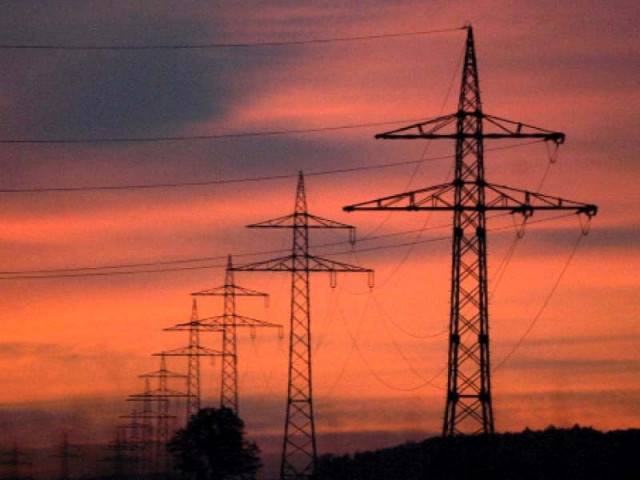Is net metering really hurting Discos?
Notion is a myth propagated by power distribution companies

The notion that ending the net metering policy is necessary is a myth propagated by the power distribution companies (Discos) with the backing from the Ministry of Energy. This move appears to be an attempt to maintain their monopoly over power supply. Additionally, it seems aimed at safeguarding independent power producers (IPPs) who are milking around Rs2.8 trillion from consumers in capacity payments.
Experts say that, at present, Discos are exploiting individuals who have installed net metering. These consumers receive only Rs22 per unit for their solar electricity, while Discos resell it to other users at rates as high as Rs65 per unit.
But Discos made a hue and cry that they lost revenue worth Rs1.90 per unit. However, they remained silent on the fact that consumers were paying Rs18 per unit on account of capacity payments to those power plants that were not generating a single unit.
What is contributing to solar energy?
In a landscape marked by soaring energy prices and environmental concerns, net metering has emerged as a beacon of resilience for households across Pakistan.
By enabling users to harness solar and renewable energy systems, net metering has not only provided relief from escalating utility bills but also catalysed a shift towards a more sustainable energy ecosystem.
This policy has empowered individuals to take control of their energy consumption, driving a wave of innovation and self-reliance.
However, amidst the successes of net metering, the government faces the daunting task of balancing fiscal prudence with the imperative of energy resilience.
One potential ramification of abrupt policy changes in net metering could be the disruption of Pakistan's emerging renewable energy sector.
A shift away from on-grid solutions may trigger a surge in off-grid installations, leading to increased reliance on imported lithium batteries.
Experts say that this could inflate Pakistan's import bill by an estimated $500 million to $1 billion annually, exacerbating the country's economic challenges and putting additional pressure on foreign currency reserves.
In navigating these complexities, collaboration and dialogue between the government, stakeholders, and organizations like the Pakistan Alternative Energy Association (PAEA) are paramount.
“PAEA stands ready to engage with policymakers to chart a course that promotes sustainability while safeguarding economic interests,” an official of PAEA told The Express Tribune.
After the introduction of net metering policy in the country, approximately 113,000 households, constituting 0.3% of the total, have transitioned to net metering.
Read also: PM sacks 8 DISCO boards over losses
Despite claims that this demographic represents the upper class, the reality diverges significantly. The majority of these consumers have accessed net metering systems by securing loans from banks, subjecting themselves to years-long repayment schedules alongside interest charges.
Experts maintain that categorizing net metering users as affluent is erroneous, particularly when considering the significant financial commitments, they undertake to adopt this renewable energy solution.
Instead of recognizing and supporting this transition towards sustainable energy practices, the government's inclination to manipulate pricing schemes for net metering unit rates or transition to gross metering poses a potential threat to the adoption of green energy.
Notably, the primary beneficiaries of net metering are the power companies, who purchase units from consumers at a significantly lower rate (Rs22/KWh) than what they resell to clients (Rs65/KWh). Given this profit margin, the insistence on additional charges, such as capacity payments, appears unjustified.
“When comparing the weighted average fuel cost of Rs9/KWh to the Rs22/KWh paid to solar system consumers under net metering, it becomes evident that distribution companies (Discos) overlook the profits generated from net metering users' electricity generation,” experts say.
They added that this oversight fails to consider the broader macroeconomic benefits of renewable energy adoption, such as reduced environmental impact and long-term cost-effectiveness.
Viewed from various angles, three distinct viewpoints emerge when examining the issue.
Firstly, power companies assert that the unit price paid to net metering consumers (Rs22) exceeds their own generation costs (Rs9), rendering them financially disadvantaged. Consumers, on the other hand, assert that they have invested independently in solar systems, thereby achieving autonomy in their electricity consumption.
Despite being offered a unit price of Rs22 by power companies, significantly lower than the Rs65 charged to other consumers, they find it unjustifiable for power companies to pursue additional charges.
Read: Govt reviews KE model for DISCOs
Consumers argue that such actions are excessive, particularly considering the profits already reaped by generation companies from the sale of discounted units.
Charging them for capacity payments or reducing net metering unit rates, despite their contribution to the grid and the environmental benefits of their energy source, appears both harsh and unreasonable.
The government faces pressure to support generation companies, despite the long-term advantages presented by net metering consumers in terms of reduced fuel imports and environmental preservation.
Experts emphasize the critical need for the government to champion and fully endorse the net metering policy. They argue that improving power infrastructure holds the potential to spur rapid economic development. Additionally, embracing green energy solutions could significantly reduce import bills, alleviating pressure on the rupee exchange rate and enabling industries to access electricity at more competitive prices, thereby bolstering exports.
“Conversely, failure to support the net metering policy could result in net metering consumers being burdened with additional charges or facing reduced unit rates,” experts said, cautioning that this could lead to consumers bearing the costs of energy storage and potentially disconnecting from the grid altogether.
Moreover, a decrease in net metering unit rates may trigger consumers to invest in higher-capacity solar systems to avoid electricity bills, consequently driving up import bills for solar equipment and placing further strain on the rupee exchange rate.
Therefore, a fair and forward-thinking policy approach is necessary to fully harness the benefits of green energy adoption and ensure sustainable economic growth.
Renewable Energy Association has suggested connection fee @PKR 1000/KWPV to offset revenue loss by Discos due to net metering.
Also read: DISCOs fined for 2022 power outages
The National Electric Power Regulatory Authority (Nepra) charges PKR 1000/KW for licence, and Discos be also permitted to charge similar amount.
Grid service charges @PKR 100/KWPV may be levied, meaning 10KW system shall pay PKR 1000/month as grid use charges. Experts say it is fair for all grid users to share the maintenance cost.
The most criticized aspect of net metering is the payment of capacity charges included in the power purchase cost of net metering monetized units.
Solar energy is available only during sunny hours. Therefore, during the daytime, the grid is offloaded. However, in the evening, solar energy disappears and peak load requirements arise.
This vastly fluctuating demand puts the grid at a possible unstable condition unless some measures are taken.
One such measure could involve keeping some plants running at idle or low output, which adds to additional costs. Therefore, there must be a viable solution other than discontinuing net metering.
Experts have recommended the promotion and investment in smart grids, whereby the demand/supply shifts are buffered by large-scale LFP battery banks at distribution points.
This approach would significantly address the load shift issues at the grid level and create a viable and conducive option for power generation mixes.
Exploring smart management of existing power production centres is a promising avenue. Hydro power generation could be regulated or pumped back (if feasible) to match the requirements.
Regulation of PV imports could be facilitated through authorized platforms involving AEDB/PPIB and trade bodies, with their board members allowing only pre-approved or vetted companies with a minimum of 3 to 5 years of experience in past renewable energy projects.



















COMMENTS
Comments are moderated and generally will be posted if they are on-topic and not abusive.
For more information, please see our Comments FAQ